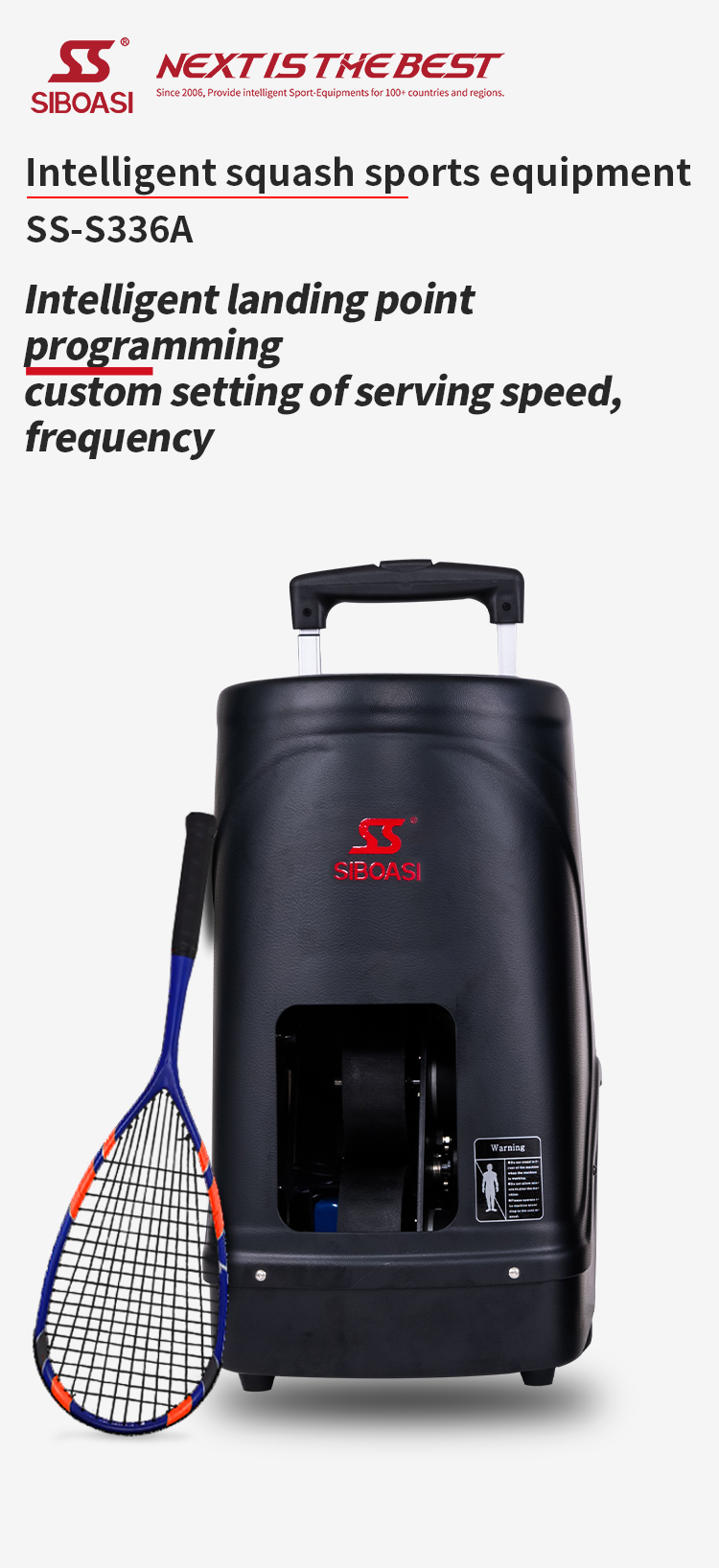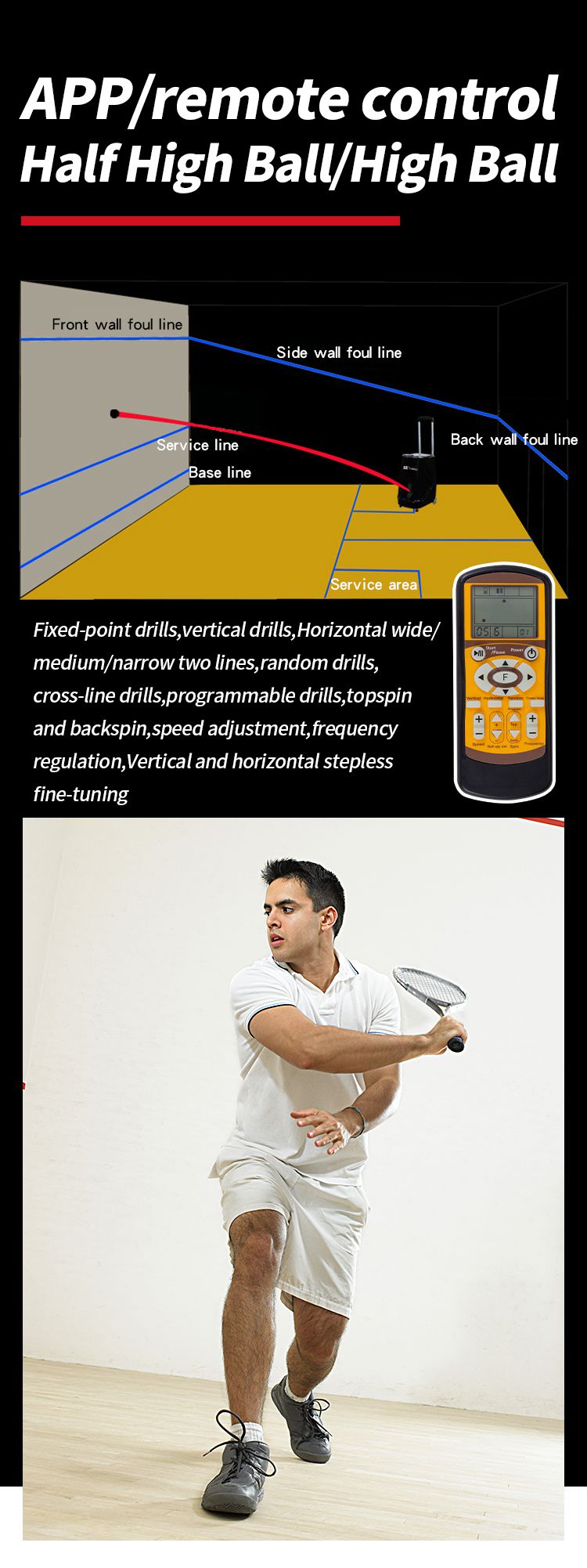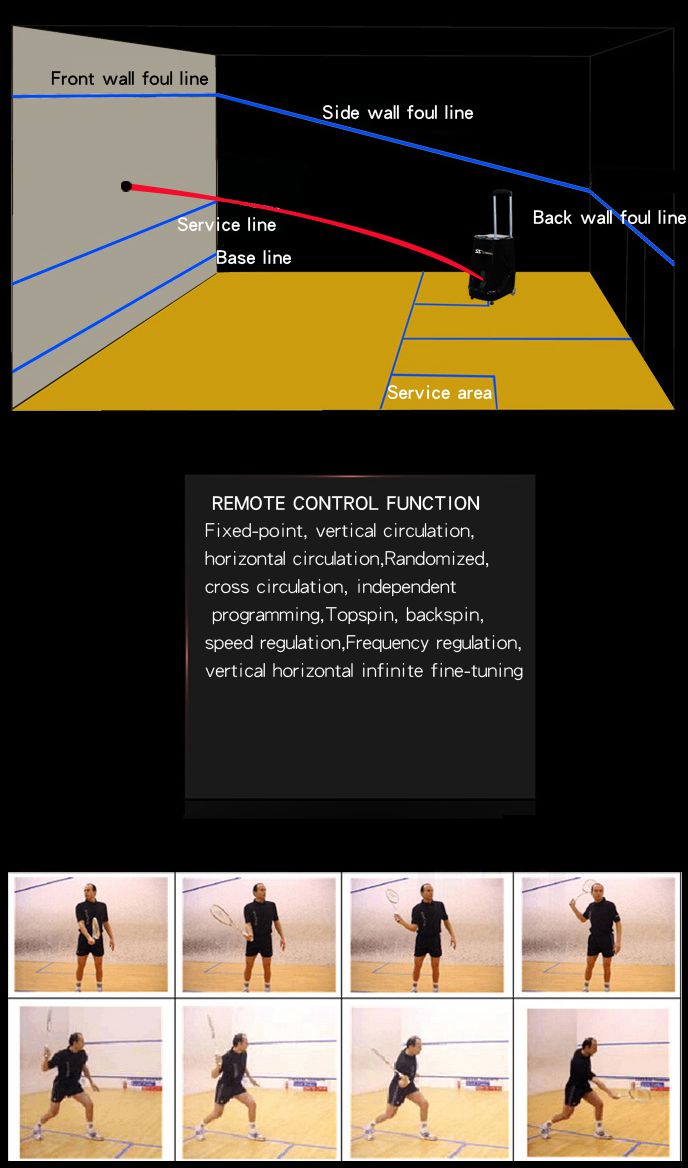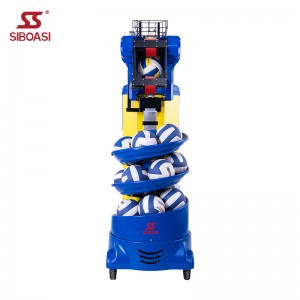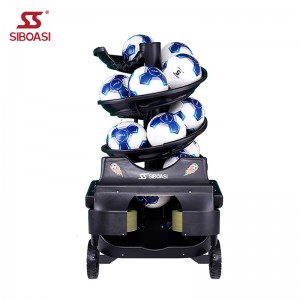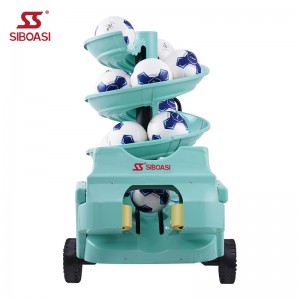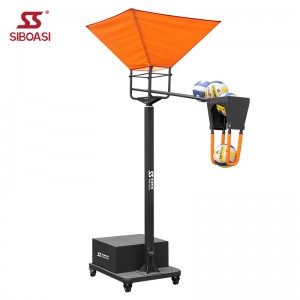Professional squash ball training machine with heater S336A
Product Highlights:

1. Wireless control, intelligent induction serving, custom setting of serving speed, angle, frequency, rotation, etc;
2. Intelligent landing point programming, self-programmed training of multiple serving modes, free choice of 6 cross-circulating ball modes;
3. Drills frequency of 2-5.1 seconds, which can help improve players' reflexes, physical fitness and endurance;
4. Built-in high-capacity lithium battery, battery life 2-3 hours,suitable for indoor and outdoor;
5. The large-capacity storage basket for 80 balls does not require training mate, which greatly improves training efficiency;
6. The bottom is equipped with a moving wheel, easy to move and various scenes can be switched at will:
7. Professional training mate, which can be used in various scenarios such as daily sports, teaching and training.
Product Parameters:
| Voltage | AC100-240V 50/60HZ |
| Power | 360W |
| Product size | 41.5x32x61cm |
| Net weight | 21KG |
| Ball capacity | 80balls |
| Frequency | 2~5.1s/ball |

Here are something said by a professional squash coach when training players:
As a professional squash ball coach, there are several key aspects to consider when training players. Here are some recommendations:
Focus on Technique: Start by ensuring that players have a solid foundation of fundamental squash techniques. Work on their grip, swing mechanics, footwork, and body positioning. Observe their technique closely and provide feedback to help them make necessary adjustments.
Develop Physical Fitness: Squash is a physically demanding sport, so it's crucial to train players to have excellent speed, agility, endurance, and strength. Incorporate exercises and drills that target these areas, such as sprints, agility ladder drills, circuit training, and weightlifting. A well-rounded training program should also include flexibility and injury prevention exercises.
Enhance Court Movement: Emphasize the importance of efficient court movement and positioning. Teach players how to cover the court effectively, use their movement patterns to anticipate shots, and recover quickly from different positions. Use various drills to simulate game situations and encourage players to move swiftly and efficiently on the court.
Encourage Tactical Awareness: Develop players' squash intelligence by teaching them different strategies, shot selection, and game plans. Analyze opponents' weaknesses and strengths and help players adapt their game accordingly. Incorporate tactical drills and match simulations to enhance players' ability to make strategic decisions during a match.
Practice Solo Routines: In addition to training with a partner or coach, encourage players to practice solo routines. These can involve focusing on specific shots, practicing different shot combinations, or working on movement patterns. Solo practice sessions help players build confidence, improve consistency, and fine-tune their skills.
Match Play and Competitions: Provide opportunities for players to participate in match play and competitions. Regular match practice allows them to apply their skills in game situations, develop mental toughness, and learn to handle pressure. Organize practice matches, arrange friendly competitions, or encourage players to participate in local squash tournaments.
Mental Conditioning: Squash is a mentally demanding sport, so help players develop mental resilience and focus. Teach them techniques for managing stress, staying focused during matches, and maintaining a positive mindset. Incorporate mindfulness exercises, visualization techniques, and mental conditioning drills to enhance their mental game.
Continuous Feedback and Evaluation: Regularly assess players' progress and provide them with constructive feedback. Utilize video analysis, match statistics, and performance metrics to identify areas for improvement. Set goals with players and track their progress, continually motivating them to strive for better performance.
Nutrition and Recovery: Emphasize the importance of proper nutrition and recovery strategies. Encourage players to fuel their bodies with wholesome, nutrient-rich foods and maintain adequate hydration. Teach them about post-training recovery techniques, such as stretching, foam rolling, and rest, to help minimize the risk of injury and optimize performance.
Establish a Supportive Environment: Create a positive and supportive training environment. Foster camaraderie among players, encourage team-building activities, and provide ample motivation and support. A positive atmosphere will enhance the players' enjoyment of the sport and their commitment to training.
Remember, individualized training plans are essential to cater to each player's unique needs and goals. Adjust and modify your coaching strategies as needed to ensure the best possible development for each player.
